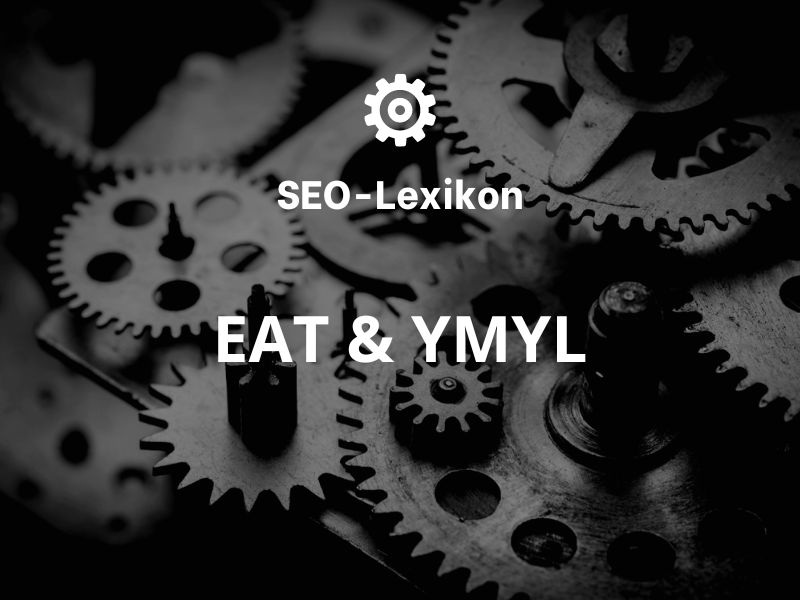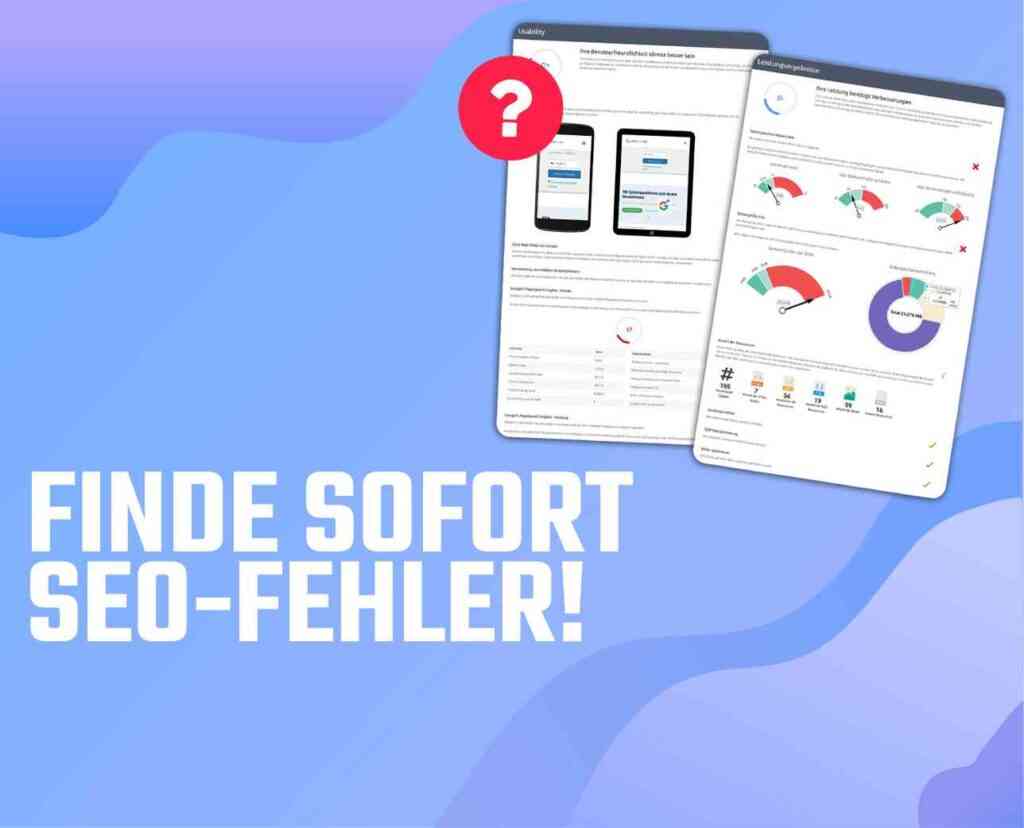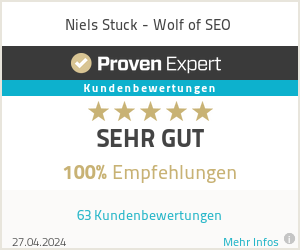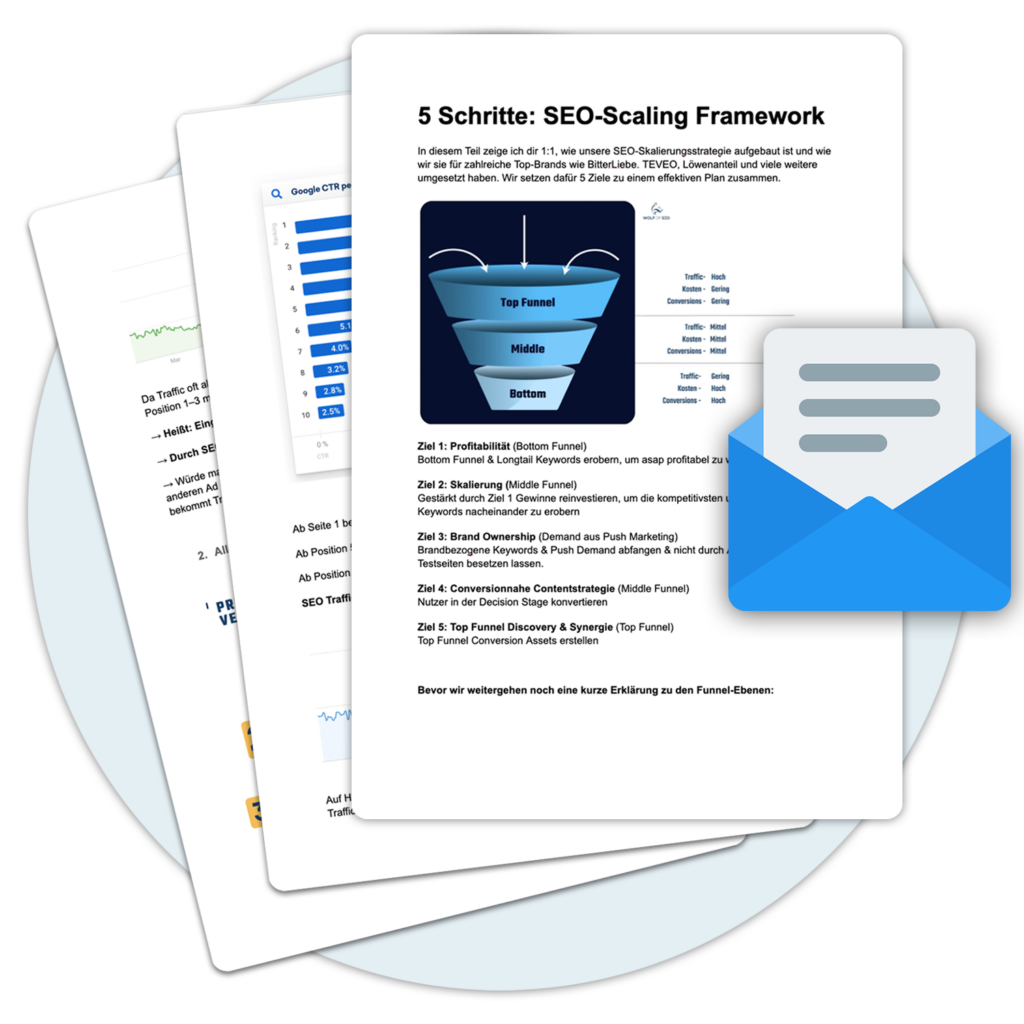In recent years, the problem of misinformation spread online has become an ever-increasing problem. For this reason, search engines like Google have started to take more decisive action against unreliable content. In 2018, they updated their search quality assessment guidelines to include new terms that help determine the reliability of online content. Two of these terms that play an important role in these guidelines are. E-A-T and YMYL.
When we look at these guidelines and the terms E-A-T and YMYL understand, we can better understand what Google is looking for in page content. We take a look at how E-A-T and YMYL are relevant for SEO.
What does E-A-T stand for?
The acronym E-A-T stands for "expertise, authority and trustworthiness". It is one of the factors that Google uses to determine the quality of a page. E-A-T appears 134 times in Google's search quality rating guidelines and is even called "one of the most important criteria for the quality of a page".
In its whitepaper describing how Google combats misinformation, the company explains that "Google's algorithms identify signals about pages that correlate with trustworthiness and authority." Basically, Google wants to promote sites with useful, accurate and relevant content.
So, let's break down E-A-T.
Expertise refers to the expert knowledge of the content author. Can they be considered an "expert" in the field they are writing about? What references can they provide to support the information presented on the website?
It is also important to know that this expertise may vary depending on the topic of the page. Creators may have "everyday" knowledge. An example of this is someone who writes about living with a particular disease or illness because they have experienced it themselves. He or she is considered an everyday expert on that topic.
Authority is what happens when others recognize the expertise presented on a website. This includes the authority of the content creator and the website itself. This "authority" can be displayed in the form of links, shares, mentions, ratings, and citations.
Finally, the aspect of the trustworthiness of E-A-T also on the fact that the creator, the content and the website are a trustworthy expert and source. When assessing trustworthiness, Google evaluators pay attention, for example, to who is responsible for the published content and what references they can provide.
What does YMYL mean and what is a YMYL website?
YMYL stands for "Your Money or Your Life." Google uses YMYL to refer to "pages or topics that may affect a person's future happiness, health, financial stability, or security." This includes topics such as finance, health, news/news, and legal articles. The term also includes sites that offer products or serviceservices sell that have to do with health, financial stability or security.
For YMYL websites like this, the proof of E-A-T particularly important because users rely on these sites to provide them with accurate information on important issues. The stakes are high for this type of content.
YMYL content that does not demonstrate expertise, authority, and trustworthiness and contains inaccurate information can directly harm a person's life or livelihood. Therefore, you must ensure that the content on your website enables them to make informed decisions.
What impact does E-A-T have on your website?
Google collects E-A-T-evaluations from its human evaluators in order to assess the quality of its Search results to test. It is important to know that E-A-T itself is not a ranking factor. This is because its components are based on human concepts that cannot be easily quantified. Ranking factors must be tangible so that a computer system can evaluate them.
However, this does not mean that E-A-T and YMYL have no influence on the ranking performance of a website. Google wants to ensure that websites that produce high-quality content are rewarded with higher rankings. And part of the proof of high-quality content is compliance with E-A-T.
Following updates to Google's search quality rating guidelines, YMYL pages were hit hard, especially those that advise on topics such as health, fitness, and finance, which shows how important these new updates are to the way Google ranks its content.
However, this does not mean that only YMYL pages are affected. Google noted that E-A-T applies to all pages, including fashion, gossip and humor pages. The top priority for creators is to offer content that adds value and meets the needs of the target audience.
Google puts more emphasis on E-A-T for YMYL pages, as users rely on these pages for factual and accurate information. If you keep your content in line with the E-A-T-If you are enriching Google's guidelines, the information should be high quality, useful, informative and accurate. This, in turn, provides a satisfying user experience that leads to a better Google ranking.Ranking contributes.
Tips for E-A-T and YMYL optimization
If you create online content, your site must demonstrate "journalistic professionalism" to meet the E-A-T improve. Even simple changes like improving grammar, spelling, and readability of articles can help increase professionalism.
If you want to make your website available for E-A-T and YMYL optimize, you must first determine whether or not your website and its content are considered YMYL. E-A-T is relevant to all websites, but it is important to determine what type of expertise your site needs. The following tips provide a guide with some additional aspects to consider when optimizing a web page or article for E-A-T are to be observed.
Links
Links are an indicator of expertise that Google can recognize. Gary Illyes, a Google Webmaster Trends Analyst, has said that EA-T is largely based on links and mentions from authoritative sites.
These links must be of high quality; from websites that have published useful, relevant, accurate and comprehensive content. Mentions from well-known industry websites help improve a page's authority. The more high-quality links a page has, the more authority it has.
Sources
Providing factual information and backing it up with data and trusted sources is an important way to ensure that your content is E-A-T shows. These sources should be easily accessible so that users can check the facts. Adding sources, expert quotes, and citations emphasizes the accuracy and trustworthiness of your information.
Credibility
Any published content should be credited with the author's name. Other references can include testimonials, previous work, endorsements, professional background, and even a photo of the author. When you include these factors, people can understand the author's credentials and feel that they can trust his or her expertise more.
Having an author profile on your own website and several other authoritative websites can help solidify your online credentials as an experienced and trusted writer.
Reviews
After you've made sure your content is credentialed, reviews are also a way to E-A-T improve. Google instructs its quality raters to use online reviews as a source of information about a company's reputation.
Insert a contact page
If you create an "About Us" and "Contact Us" section on your website that is easy to find and navigate, users will be able to ask questions directly while understanding who is providing this information to them.
Update or remove old content
Fact checking is the key to maintaining E-A-T and content should be edited, reviewed and updated regularly. Search Engine Journals CEO Danny Goodwin says you need to decide whether to improve or remove your old or outdated content. This can take the form of editing and updating pages, but if the content is not worth the investment or is no longer accurate or relevant, it can be removed.
Add more information
Making an article more comprehensive and detailed can make it more competent and satisfying for users. However, the content must have a purpose and be useful to your users' customers.
E-A-T is not the only solution for optimizing your website, but it is clear that it is an important factor for Google and should therefore be considered in your digital marketing strategy. Many of these changes are easy to implement. This way, you can ensure that your website or article is optimized to perform well in Google's search results.
Examples of YMYL websites where E-A-T is important
- A lawyer's website: Google wants to ensure that the information on such sites comes from a qualified attorney and that it is current and accurate.
- A medical or health practice website: Google wants to ensure that the information on such sites comes from qualified physicians or medical professionals and that it is accurate.
- A doctor's website: As with a medical or healthcare practice, Google wants to ensure that the information on such sites comes from a qualified physician and is accurate.
- A website that sells nutritional supplements: Google wants to make sure that the information about the dietary supplements on such websites is accurate and that the website is reputable and trustworthy.
- A financial website: Google wants to make sure that the information on such sites comes from professionals and that the advice is given responsibly.
- A website for investment advice: Google wants to ensure that the information on such sites comes from qualified investment advisors and that the advice is provided responsibly.
- A website for legal advice: Google wants to ensure that the information on such sites comes from qualified attorneys and that advice is given responsibly.
- A website for nutritional advice: Google wants to ensure that the information on such sites comes from qualified nutritionists and that the advice is given responsibly.
- A website that provides medical or health-related information: Google wants to make sure that the information on such sites comes from experts and is accurate.
- A website that offers reviews or recommendations for services or products: Google wants to make sure that the reviews are genuine and come from people who actually have experience with the services or products.
Google EAT in detail example of a doctor
Google E-A-T stands for expertise, authority and trustworthiness (Expertise, Authority, trustworthiness). It is an important factor that Google takes into account when evaluating the quality of content on websites. Although E-A-T not directly a Ranking-factor, it influences the quality signals that Google uses to determine the Relevance and usefulness of content for users. Here is how Google E-A-T evaluated and how a renowned doctor can serve as an example:
- Expertise: Google evaluates the expertise of the author or organization that created the content. It checks whether the author has sufficient knowledge and experience in the given topic. In the case of a renowned doctor, his or her expertise can be demonstrated by his or her medical degrees, residency training, publications in professional journals, and many years of experience in medical practice.
- Authority: Google also assesses the authority of the author or organization in their field. A person or organization with high authority usually has a good reputation, numerous publications and references from other experts or reputable sources. The renowned doctor may be considered an authority in his or her field if, for example, he or she is cited by other doctors or professionals, his or her research is published in respected journals, or he or she serves on medical boards or organizations.
- Trustworthiness: Finally, Google checks the trustworthiness of the website and the author. This includes factors such as website security, privacy policies, contact information, and customer reviews. To be considered trustworthy, the reputable doctor should ensure that their website or practice website meets all of these requirements, including SSL encryption, transparent privacy policies, and easily accessible contact information.
In order to E-A-TTo improve the reputation rating, the renowned doctor should take care to create high-quality content, further develop his expertise and authority through publications, citations and lectures, and ensure the trustworthiness of his website. A higher E-A-T-rating can ultimately help its content be seen by Google as relevant and useful to users, and thus achieve better rankings in search results.
Conclusion on Google E-A-T
Google E-A-T, short for expertise, authority and trustworthiness, is like the backbone of a quality website in the eyes of Google. Imagine E-A-T like the ingredients of a successful recipe: If you add all the ingredients in the right quantities and quality, you will get a delicious dish that will satisfy and impress the guests (in this case, the users).
Expertise is like the knowledge of proper preparation and cooking techniques that you apply in your recipe. The more experience and knowledge you have, the better the result will be. Authority is like the recognition you receive from other chefs and foodies who praise and validate your talent and skills. Trustworthiness is the assurance that the ingredients you use are of high quality and that your kitchen is clean and safe.
If you successfully combine these three aspects - expertise, authority and trustworthiness - in your online content and on your website, you will convince Google that your website provides high-quality and useful information. As a result, the chances that your content will rank higher in search results and attract more visitors to your website will increase. Therefore, it is important to continuously work on improving your E-A-T-profile to compete for the favor of Google and users in the long term.
« Back to Glossary Index






 By
By 